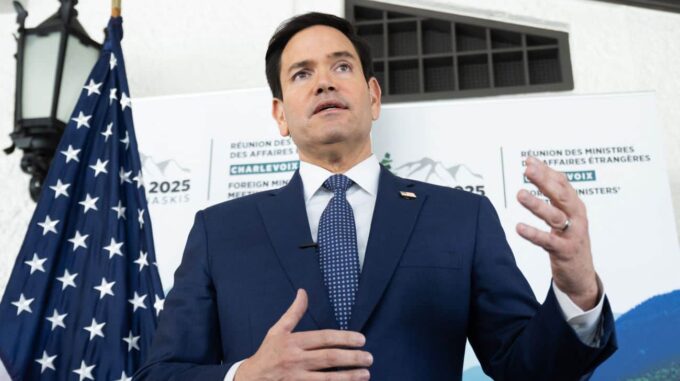The USA awaits specific conditions from Russia regarding a ceasefire in Ukraine, says Rubio

In the seventh month of Russia’s war against Ukraine, the international community continues to observe diplomatic negotiations progress, with particular attention to the internal dynamics of the relationship between Washington and Moscow. Recently, a phone call between US President Donald Trump and Russian President Vladimir Putin marked a new stage in this process: American and Russian leaders discussed the possibility of a ceasefire and future negotiations. According to information released in the US Congress, notably during hearings before the Senate Foreign Relations Committee, Secretary of State Marco Rubio stated that Russia has promised to provide the US with a “clear list of conditions” needed to achieve an official and stable ceasefire in Ukraine. “As we understand it, the Russians are now preparing to formulate and send these conditions. This is their way of determining what is needed to start large-scale negotiations and establish peace,” he emphasized. Rubio noted that this step is significant because it allows the US to more accurately assess Moscow’s intentions. “We are awaiting these conditions to see their plans and understand the course Putin is choosing. Only after they are announced will we have a full picture of his calculations and objectives,” he added. This casts doubt on claims of a quick resolution to the conflict and demonstrates the cautious approach of the Trump administration, which keeps open the possibility to analyze Russia’s declarations and respond if necessary. It is worth emphasizing that this development occurs amid heightened diplomatic tensions. Despite a two-hour phone call between Trump and Putin last Monday— which did not result in concrete breakthroughs regarding a ceasefire—the US and its European allies remain disappointed. They expected more active measures from Washington to pressure the Kremlin and accelerate efforts to find peace; however, current results seem modest. Meanwhile, at the Senate Foreign Relations Committee, an American diplomat defended the Trump administration’s approach to Russia, emphasizing that the US maintains a firm stance in supporting Ukraine and defending its interests in the international arena. Media reports indicate that during one of his phone conversations with Ukrainian President Volodymyr Zelenskyy and European leaders, Donald Trump shared information about a personal initiative—an approach to reach out to Putin with a proposal, which Kyiv and European countries could consider without dismissing it outright. According to the US leader, such an approach could serve as a starting point for constructive negotiations and help create conditions for a quicker achievement of peace. Analysts estimate that it remains unclear when exactly and under what specific conditions Russia is willing to make concessions. At the same time, diplomatic circles agree that the US aims to preserve maximum independence in its strategic decisions and is not rushing to make compromises until clear project proposals come from Moscow. This confirms their position not only regarding the ongoing conflict in eastern Ukraine but also within the broader context of global political competition for the balance of power and Russia’s role in the world. Thus, the diplomatic game continues: the United States waits for specificity, while the Kremlin tries to formulate demands that will allow it to save face and gain the necessary maneuvering space—while Ukraine and its allies call for swift and effective solutions. Only time will tell how and under what terms this lengthy diplomatic process will conclude.

